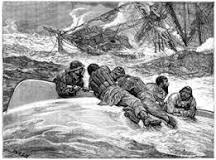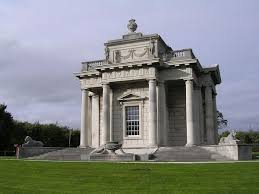Published here by Don at Tony’s request.
I am looking at the Andrew Marr programme this morning, on the BBC1, where a guest is the statistician who wrote the article in the Guardian newspaper which went viral amongst politicians, and was used by Boris the Bad to explain that you cannot compare levels of infections and death rates across different countries. His name is Sir David Spiegelhalter and he is on the Sage Committee, advising the U.K Government on Covid 19
Some of his learned observations are most illuminating, as follows:
- Estimated infection rate for UK min 3,500,000 … poor data and testing a problem.
- Death rate best indicator … but use stats for all deaths and compare with stats for same months across many years.
Using this basis he estimates U.K has about a further 27,000 unexplainable deaths so far.
He drew attention to the evidence across many countries that this illness is mainly a fatal illness for the over 75 age group … lockdown policy should perhaps now be focused on vulnerable groups .
Like many academics he feels his article was misrepresented. It is possible to compare mortality and infection rates across countries with caveats. On that basis we can compare the different policy responses.
Increasingly I am coming to the view that the Politicians handed over control on policy to medical and scientific advisors who had a very limited understanding of the enormous implications of their advice. Medical Advice is just that … Advice!! Policy Response should go far wider than that but factor it in.
I think future generations will wonder how creating mass unemployment and a global recession was an appropriate policy response.
Please Read the following articles. There will be an online exam on Thursday.

 listed as Strange Lands but somehow we managed to talk while hardly mentioning books or authors although Jim Crace, John Le Carré, Patricia Highsmith and John Steinbeck got honourable mentions. The relative merits of story versus characterisation were debated. Cormac McCarthy got short shrift while poor old Jean-Paul Sartre was put firmly in his existentialist box and his homeland cast adrift in the Bay of Biscay, sauve qui peut. Thomas Schelling’s Micromotives and Macrobehaviour was briefly described in relation to the formation of racial, economic or religious ghettos despite the absence of prejudice.
listed as Strange Lands but somehow we managed to talk while hardly mentioning books or authors although Jim Crace, John Le Carré, Patricia Highsmith and John Steinbeck got honourable mentions. The relative merits of story versus characterisation were debated. Cormac McCarthy got short shrift while poor old Jean-Paul Sartre was put firmly in his existentialist box and his homeland cast adrift in the Bay of Biscay, sauve qui peut. Thomas Schelling’s Micromotives and Macrobehaviour was briefly described in relation to the formation of racial, economic or religious ghettos despite the absence of prejudice. hopes the project will lead. Books were central but there was clearly lots of appetite for other media (cinema, TV) and also excursions to cultural locations; some of those mentioned included the Casino in Marino, Victor’s Way in Roundwood and
hopes the project will lead. Books were central but there was clearly lots of appetite for other media (cinema, TV) and also excursions to cultural locations; some of those mentioned included the Casino in Marino, Victor’s Way in Roundwood and